ASBMB names 2023 fellows
The American Society for Biochemistry and Molecular Biology today announced that 20 members have been named fellows of the scientific society.
Designation as a fellow recognizes outstanding commitment to the ASBMB through participation in the society in addition to accomplishments in research, education, mentorship, diversity and inclusion, advocacy, and service to the scientific community.
"We are delighted to welcome the 2023 class of ASBMB fellows,” said Judith Bond, past president of the ASBMB and chair of the subcommittee that manages the fellows program. “This group truly represents members who have provided exceptional commitment to our society through their service as well as outstanding contributions to advance the molecular life sciences. They reflect the breadth and diversity of our members as researchers, educators, mentors and/or advocates of our profession. It is an honor to have these individuals represent ASBMB, and we look forward to seeing them continue to serve as role models and mentors to aspiring scientists.”
This is the third year the society has named fellows. They will be recognized at the society’s annual meeting, Discover BMB, in Seattle later this month.
Learn more about the 2023 fellows below.
Norma Allewell
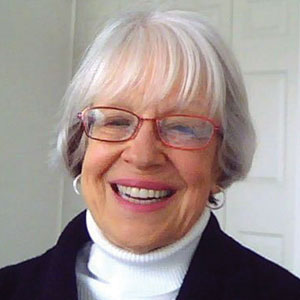
Norma Allewell is an emeritus professor at the University of Maryland at College Park. She previously held leadership positions at Wesleyan University, the University of Minnesota and Harvard University. Her research focuses on protein structure, function and dynamics as well as metabolic regulatory mechanisms and diseases.
An ASBMB member since 1979, Allewell served multiple terms as a Journal of Biological Chemistry editorial board member and, starting in 2002, as an associate editor, which, her nominators wrote, helped to “catalyze and further develop a biophysical and structural perspective and presence” for the journal. During her final years of service, she helped devise a new strategic plan for the JBC. She is a fellow of the American Association for the Advancement of Science.
In their letter nominating Allewell as a fellow, Charles Samuel of the University of California, Santa Barbara, and Lila Gierasch of the University of Massachusetts Amherst wrote: “Norma is a pioneer. … She maintained a cutting-edge research program and enjoyed success as a skilled administrator and academic editor.”
Thomas Baldwin
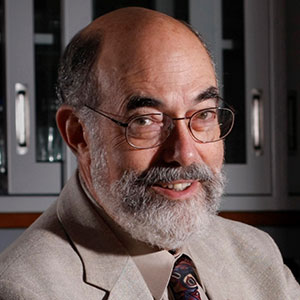
An emeritus professor at the University of California, Riverside, Thomas Baldwin served as dean of the College of Natural and Agricultural Sciences from 2008 to 2012 and retired in 2015. He is the author of nearly 150 scientific papers, many of them focusing on bioluminescence in organisms ranging from bacteria to fireflies.
An ASBMB member since 1981, Baldwin represented the society on the board of directors of the Federation of American Societies for Experimental Biology, including one year (2017) as president. He has served on the editorial board of the Journal of Biological Chemistry, as a member of the Nominating Committee and its chair, and as a member of the Public Affairs Advisory Committee.
Balwin also helped launch what became the Science Outreach and Communications Committee, serving as its first chair. He also is among the ASBMB members who developed “The Art of Science Communication,” an eight-week, online course.
Ralph Bradshaw, professor emeritus at the University of California, Irvine, nominated Baldwin as a fellow. “Tom is an accomplished scientist, educator and academic administrator,” Bradshaw wrote.
Susan Baserga
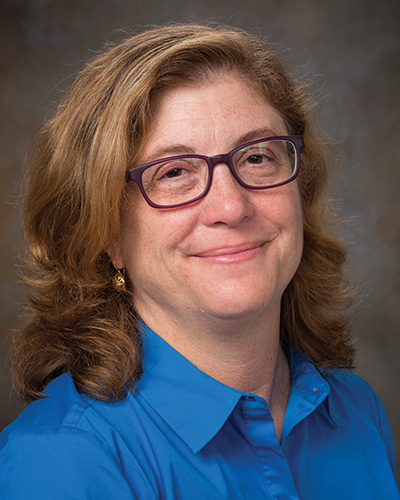
Susan J. Baserga is the William H. Fleming M.D. professor of molecular biophysics and biochemistry at Yale University, director of medical studies, and co-director of the predoctoral program in cellular, molecular and quantitative biology. Her lab studies ribosome biogenesis and assembly in yeast and human cells, and pioneered the purification and identification of the protein components of the nucleolar SSU processome and the molecular basis of ribosomopathies.
Baserga, a physician–scientist who has been an ASBMB member since 2008, received the society’s William C. Rose Award in 2016 for outstanding research and commitment to training young scientists. She served on the ASBMB’s Public Affairs Advisory Committee and is a co-founder and current chair of the Women in Biochemistry and Molecular Biology Committee. Baserga has been involved in the society’s recurrent Emerging Roles of the Nucleolus special symposium. She has written articles for ASBMB Today on wellness and women in academic science.
Jennifer Gerton of the Stowers Institute, who nominated Baserga, wrote, “In addition to her service to ASBMB, Susan is a seasoned leader in the field, and brings a special perspective as an M.D. and Ph.D.”
Marilee Benore

Marilee Benore is a professor of biochemistry and biological sciences at the University of Michigan–Dearborn. Her lab focuses on the vitamin riboflavin, studying transport and detection via the protein riboflavin binding protein. They have conducted studies on a flock of chickens with a mutation in riboflavin-binding protein gene that lay eggs devoid of riboflavin, rendering the egg albumen transparent. Benore also conducts research in women’s persistence in science, technology, engineering and mathematics as well as biochemistry pedagogy.
Benore is a former chair of the ASBMB’s Student Chapters subcommittee and is a member of the society’s Women in Biochemistry and Molecular Biology Committee. An ASBMB member for decades, she has also been involved in undergraduate poster competition judging for many years. Benore has published multiple articles in ASBMB Today about her scientific and personal experiences.
Michael Pikaart of Hope College, also a 2023 fellow, nominated Benore. “She is a careful, methodical and well-trained scientist who expects similar care from her students,” Pikaart wrote. “She is inspired by the amazing biochemistry she studies. And she shares her knowledge generously in print and in person.”
Charles Brenner
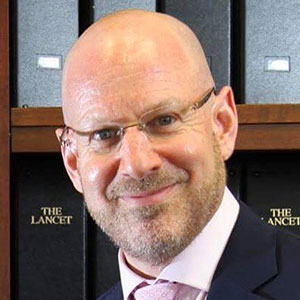
Charles Brenner is a professor and the Alfred E. Mann Family Foundation chair of diabetes and cancer metabolism within the Beckman Research Institute at the City of Hope National Medical Center in Los Angeles.
His laboratory focuses on regulation and dysregulation of nicotinamide adenine dinucleotide (NAD), the central coenzyme of metabolism. Notably, Brenner discovered the nicotinamide riboside (NR) kinase pathway to NAD and, by developing quantitative targeted NAD metabolomics, discovered that the NAD system is disturbed in multiple conditions of metabolic stress including heart failure, neurodegeneration, viral infection and postpartum. His work on NR has been successfully translated and has led to dozens of clinical trials worldwide, several of which are showing anti-inflammatory and other beneficial activities of NR in people.
The former 11-year head of biochemistry at University of Iowa, Brenner has also contributed in all areas of biochemistry education, most notably with the publication of curriculum recommendations for premedical education.
Brenner is a former member and chair of the ASBMB Publications Committee; he served from 2009 to 2016. An ASBMB member since 1996, he is also former chair of the editorial advisory board of ASBMB Today. In 2016, he received the ASBMB Award for Exemplary Contributions to Education for his work on the society’s position statement on undergraduate science education as preparation for MCAT and molecular literacy.
Rama Natarajan of City of Hope, who nominated Brenner, wrote that he “is a true leader who has advanced biochemistry and molecular biology with his own teaching, with his national work on education, with his mentorship of trainees and junior faculty members, with his highly original research program, with translation of his research program, and with his rigorous and broad commitment to outreach and honest science communications.”
Craig Cameron

Craig Cameron is a professor and the chair of the microbiology and immunology department at the University of North Carolina at Chapel Hill. His lab studies the fundamental biochemistry of RNA viruses and RNA polymerases. Recently, he developed a microfluidics-based, cell-culturing, imaging and data-analysis platform that enables high-throughput study of single cells infected by a virus that expresses a fluorescent reporter.
Cameron is an associate editor at the Journal of Biological Chemistry and served on the JBC editorial board for many years. An ASBMB member since 1999, he also has served on the advisory board for ASBMB Today, as chair of the ASBMB Maximizing Access Committee, as a member of the Public Affairs Advisory Committee and as a member of the Education and Professional Development Committee. He is a co-chair of Discover BMB, the society’s annual meeting.
S. Gaylen Bradley of Virginia Commonwealth University, who nominated Cameron, wrote that he has “established himself as an outstanding molecular biologist. … (and) has an impressive record of publications on molecular biology of viruses and enzymes, including a 2021 paper on SARS-CoV-2 polymerase.”
Sonia Flores

Sonia Flores is a professor and vice chair for diversity and justice in the Department of Medicine at the University of Colorado Anschutz Medical Campus. Her research focuses on human immunodeficiency virus, and she discovered that the HIV protein Tat causes oxidative stress by inhibiting the expression of mitochondrial superoxide dismutase.
Flores first became a member of the ASBMB in 1986 as a graduate student. Over the decades, she has organized and co-chaired many workshops at the intersection of science and social justice. She has been involved in the society’s IMAGE grant-writing workshop since 2010. She is now the chair of the ASBMB Maximizing Access Committee. She has also published numerous works promoting diversity, equity and inclusion in ASBMB Today and other outlets and championing parental leave and the mitigation of sexual harassment in science.
Ruma Banerjee of the University of Michigan Medical School, who nominated Flores, wrote, “For her substantial and substantive contributions to ASBMB and across all levels of our scientific community, to promoting STEM diversity, Sonia is most deserving of being recognized as an ASBMB fellow.”
Susan Forsburg
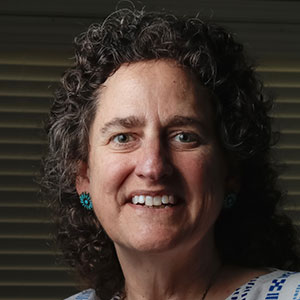
Susan Forsburg, a distinguished professor at the University of Southern California, studies how chromosome duplication and maintenance help keep the genome stable, using the fission yeast Schizosaccharomyces pombe.
An ASBMB member since 2003, Forsburg served on the Public Affairs Advisory Committee from 2010 to 2012 and again from 2016 to 2022 and took part in Hill Day visits to the U.S. Capitol. She chaired a working group on harassment (2018–2019) and co-chaired a working group on diversity, equity and inclusion (2021–2022).
Four members nominated Forsburg: Anita Corbett of Emory University, Katherine Friedman of Vanderbilt University, Terri Goss Kinzy of Illinois State University, and Tricia Serio of the University of Massachusetts Amherst. They wrote that Forsburg “is an outstanding scientist with an impressive track record of service to ASBMB as well as a commitment to the field of molecular biology.” They continued: “She has been a tireless advocate for women and STEM and she shares generously of her experiences as an LGBTQ+ individual, providing a key role model for current and future generations of scientists.”
Gregory J. Gatto Jr.
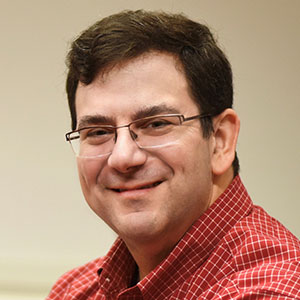
Gregory J. Gatto Jr., a biochemist and enzymologist with more than 15 years of experience in drug discovery, is a scientific director at GlaxoSmithKline, where he manages new target identification and validation strategies for novel therapeutics. He was a co-author for several editions of the textbook “Biochemistry,” originally authored by Lubert Stryer and first published in 1975, and plans to be involved with future editions.
Gatto was a member of the ASBMB Council from 2013 to 2016 and served on the Membership Committee from 2016 to 2022. He helped lead and moderate the society’s 2020 webinar “Collaboration 101: Developing Partnerships between Academia and Industry.”
Nominators Mark R. Harpel of GSK and Jeremy M. Berg at the University of Pittsburgh School of Medicine noted Gatto’s scientific rigor and innovative thinking. They also lauded his “practical application of central biochemical and molecular principles; disciplined translation of these principles to address unmet medical needs in human disease; and passion for educating and developing new as well as established scientists.”
Robert Haltiwanger
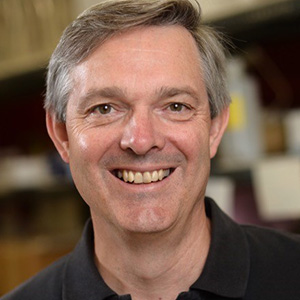
Robert Haltiwanger is a professor at the University of Georgia’s Complex Carbohydrate Research Center. He studies O-linked glycans and currently serves as principal or joint investigator on four major grants from the National Institutes for Health. He has authored 154 papers to date.
An ASBMB member for more than three decades, Haltiwanger has served on the Publications Committee and was co-chair of the 2021 annual meeting. He served as a member of the Journal of Biological Chemistry editorial board and since 2022 has been a JBC associate editor.
Haltiwanger was nominated by UGA colleagues Christopher M. West and Michael Tiemeyer. “Bob is an outstanding scientist who, together with his tireless leadership and service efforts, has effected a significant and sustained impact on the field of biochemistry and molecular biology especially in the disciplines of glycobiology and developmental biology,” they wrote.
Mark Lemmon

Mark Lemmon was recently named chair of the pharmacology department at Yale University where he holds an endowed professorship and directs the Cancer Biology Institute. He previously served as deputy director of the Yale Cancer Center. His lab studies the signaling networks controlled by growth factor receptor tyrosine kinases that, when mutated, can cause cancers and other diseases. He has also contributed to the field of signaling through phospholipids and phosphoinositides and to membrane protein folding.
Lemmon served for six years (2007–2013) as the ASBMB’s secretary and also as a Council member. He was a co-organizer of the society’s 2009 annual meeting and of small meetings in 2015. He is a fellow of the Royal Society and chairs the editorial board of the Biochemical Journal.
Alex Toker, editor-in-chief of the Journal of Biological Chemistry, who nominated Lemmon, wrote, “Prof. Lemmon actively and effectively fosters the careers of not only those who work with him but, perhaps more impressively, of those young scientists whose work intersects with his.”
Susan Marqusee
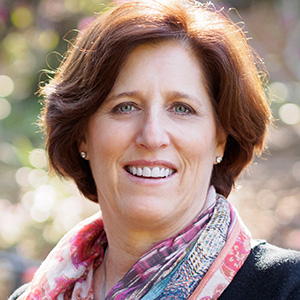
Susan Marqusee is a professor of molecular and cell biology at the University of California, Berkeley, and a professor of chemistry. In her laboratory, Marqusee and her team probe the structural and dynamic information encoded in the linear sequence of amino acids. In addition to her research, she served for 10 years as associate director of the California Institute for Quantitative Biosciences at UC Berkeley (qb3-berkeley) and another decade as its director.
In 2012, Marqusee received the ASBMB’s William C. Rose Award recognizing both her contributions to research and her commitment to training emerging scientists. An ASBMB member since 1995, she served on the society’s Council from 2015 to 2018. She was elected to the National Academy of Science in 2016 and to the American Association for the Advancement of Science in 2013.
Eva Nogales of UC Berkeley nominated Marqusee. “Susan has, in addition to a stellar scientific career, a fantastic record of service to the scientific community at large and to ASBMB in particular,” Nogales wrote.
Pamela Mertz
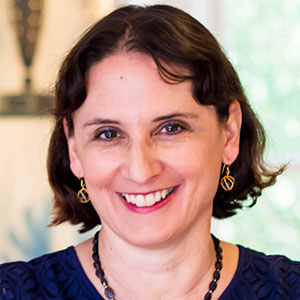
Pamela Mertz is a professor at St. Mary’s College of Maryland, where she teaches biochemistry I and II lecture and lab, general chemistry II lab, medicinal chemistry, and first-year seminar courses. She was a founder of the biochemistry major at her institution and continues to coordinate the program. Her lab has worked on a number of biochemical projects, including ones in the areas of lipid metabolism and intracellular drug synthesis. She also explores science pedagogy, from laboratory and capstone projects to students’ professional skill development, and biomolecular visualization. She is on the steering committee for BioMolViz and on the editorial board for the journal Biochemistry and Molecular Biology Education.
Mertz has been an ASBMB member since 1999. She is chair of the ASBMB Student Chapters steering committee and was the southeast regional director for seven years. She played an instrumental role in St. Mary’s ASBMB accreditation. For many years she has served as a judge in the annual ASBMB undergraduate poster competition and received the ASBMB Science Fair Award for support of students at local science fairs.
She is a frequent contributor to ASBMB Today and has written on a variety of topics, including professional development and biochemistry education. She is one of the organizers for the 2023 ASBMB summer education meeting, “Transforming education in the molecular life sciences,” that will be held at Suffolk University in July.
Kristin Fox of Union College, who nominated Mertz, wrote, “Her numerous activities of increasing responsibility show the high esteem that her colleagues at ASBMB hold her in.”
James Ntambi
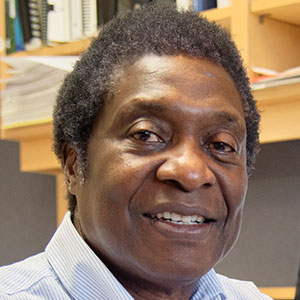
James Ntambi is a professor at the University of Wisconsin–Madison. His research program focuses on the genetic regulation of metabolism in health and disease. He studies adipocyte biology, differentiation, hormonal and dietary regulation of gene expression.
An ASBMB member since 1986, Ntambi was elected to Council in 2018 and re-elected in 2021. He has organized ASBMB conferences and symposia for the annual meeting. He also has served as a judge for the annual undergraduate poster competition and brought many students into the ASBMB community. He won the 2013 ASBMB Award for Exemplary Contributions to Education and serves as an editorial board member of the Journal of Biological Chemistry.
Ntambi was nominated by Gerald Hart, Dan Raben, Suzanne Barbour and David Bernlohr. Raben wrote that Ntambi “has shown that this simple structural change in fatty acids is responsible for an incredible array of biology,” while Hart noted his research “has been and continues to be truly outstanding and at the cutting edge, having dramatic impacts on our fundamental understanding of genetic regulation of metabolism.” Bernlohr pointed to his work bringing together “academic and research institutions across the East and Central African region with the goal of building a Ph.D. training program in basic laboratory research in biochemistry and nutritional sciences,” and Barbour noted “his commitment to training the next generation of biochemists and molecular biologists both here and in Uganda.”
Phillip Ortiz
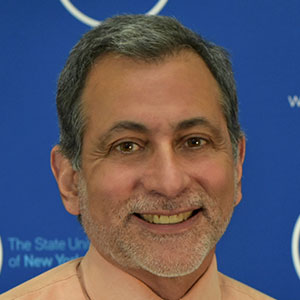
Phillip Ortiz is the assistant provost for undergraduate and STEM education at the State University of New York and has wide interests in improving STEM education and access for all students. He has made important contributions to remote and distance learning initiatives at SUNY and beyond. He regularly publishes commentaries and best practices in scholarly journals, and he also serves as the editor-in-chief of the journal Biochemistry and Molecular Biology Education.
An ASBMB member since 1991, Ortiz has been instrumental in organizing the society’s annual undergraduate poster competition and has frequently served as a judge. He also served on and chaired the Maximizing Access Committee to promote diversity, equity and inclusion in the biochemistry workforce. He initiated the society’s strong relationships with the Society for the Advancement of Chicanos and Native Americans in Science and the Annual Biomedical Research Conference for Minority Students. He was also involved in the founding and organization of the ASBMB Student Chapters program.
Marilee Benore, who nominated Ortiz and also was named a fellow this year, wrote, “Phil Ortiz has had a long-term and critical impact on the work of the ASBMB society in his diverse roles in education research, diversity and inclusion efforts, and in connecting BMB researchers internationally.”
Michael Pikaart

Michael Pikaart is a professor at Hope College in Holland, Michigan. His lab focuses on environmental microbiology, working with nonprofit and government organizations to develop and test methods to ensure that drinking water is safe for humans and the environment. Another focus is biochemistry pedagogy; along with his collaborators in the National Science Foundation-funded BASIL project, Pikaart has played a major role in developing an undergraduate biochemistry research experience that allows students to help determine the enzymatic function of proteins with unknown activities.
Pikaart has been an ASBMB member for more than 20 years. He is director of Hope College’s ASBMB-accredited biochemistry and molecular biology program and was instrumental in Hope achieving accreditation. He is very involved in ASBMB meetings and has served as an undergraduate poster competition judge since he joined the society. He also is dedicated to the activities of the society’s undergraduate Student Chapters program and has served as a regional director and a member of the Education and Professional Development Committee.
John Tansey of Otterbein University, who nominated Pikaart, wrote, “His work with the society, his work with students, his scientific contributions and his contributions to education all collectively paint a picture of someone the society should be proud to call a fellow.”
William Smith
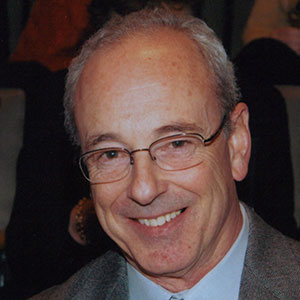
William Smith is an emeritus professor at the University of Michigan Medical School, where he earned his Ph.D. more than 50 years ago. Smith began his career at Michigan State University, where he was a faculty member from 1975 to 2003 and chair from 1995 to 2002. He joined the University of Michigan Medical School in 2003, serving as chair and an endowed professor until 2015.
Smith’s research focused on signal transduction, eicosanoid metabolism and function, lipids and lipid mediators, essential fatty acid metabolism and nutrition. He probed the roles of nutritionally essential fatty acids, prostaglandins, nonsteroidal anti-inflammatory drugs and cyclooxygenases in inflammation, thrombosis and colon cancer.
An ASBMB member for more than four decades, Smith served as an associate editor for the Journal of Biological Chemistry (2000–2015). He received the ASBMB Avanti Award in Lipid Biochemistry in 2004 and the William C. Rose Award for outstanding research and commitment to training young scientists in 2006. He was the Berzelius Lecturer at the Karolinska Institute in 2004. In 2007, Smith, Al Burlingame, Heidi Hamm, and Barbara Gordon were in the first ASBMB delegation that visited and developed relationships with Chinese scientists in Beijing, Shanghai, Guangzhou and elsewhere.
George Carman of Rutgers University, who nominated Smith, wrote: “Bill’s scientific stature is exemplified by continuous funding from the NIH, service on national and international advisory boards, service on numerous editorial boards besides those operated by ASBMB, and numerous honors and awards.”
Melissa Starovasnik
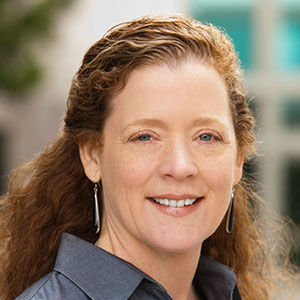
Melissa Starovasnik currently serves as a member of the board of directors for Twist Bioscience and is a member of the scientific advisory boards for a variety of biotechnology companies, including Aarvik Therapeutics, Ambrx and Denali Therapeutics, among others. She worked for 28 years at Genentech in roles of increasing responsibility, where she served on the Research Leadership Team from 2010 to 2017 and oversaw the discovery and optimization of more than 20 protein therapeutic candidates that entered clinical trials.
She began as a postdoctoral researcher and scientist at Genentech, rose to become director and then senior director of structural biology (2007–2010), was then vice president of research operations and structural biology (2010–2012), eventually leading the large-molecule drug discovery organization as vice president of protein sciences (2012–2017), and finally serving as senior scientific advisor, research (2017-2021).
An ASBMB member since 2011, Starovasnik has been a member of committees dedicated to the society’s annual awards and mentoring. She also has served on the Council and was a founding member of the society’s industry advisory group, started in 2020 as an arm of the Membership Committee. She has written about landing industry jobs in ASBMB Today.
Wayne J. Fairbrother, a Genentech vice president who nominated Starovasnik, cited her service on several equity-focuses committees. “Although Melissa’s contributions to the Genentech research portfolio and pipeline were outstanding,” he wrote, “I believe her greatest legacy is her contributions as a mentor and a champion for diversity and inclusion.”
Judith Storch
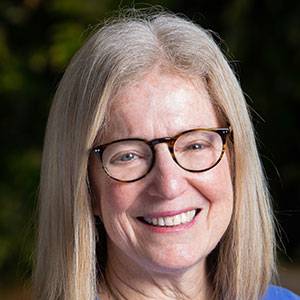
Judith Storch is a professor of nutritional sciences in the School of Environmental and Biological Sciences at Rutgers University. Her lab focuses on fatty acid and cholesterol binding proteins, and her work has major implications for the treatment of obesity, cardiovascular disease and lipid-storage diseases.
An ASBMB member since 2003, Storch has served two terms on the editorial board of the Journal of Biological Chemistry, and she is a past member of the ASBMB Publications Committee. She is on the steering committee of the ASBMB Lipid Research Division and has written several articles in ASBMB Today representing the division. Storch is also a fellow of the American Society of Nutrition.
George Carman, also of Rutgers, nominated Storch. He has been her colleague for more than 40 years. “I have the highest regard for her as a scientist, educator and colleague with respect to outreach activities within and outside the ASBMB,” Carman wrote.
Kelly Ten Hagen
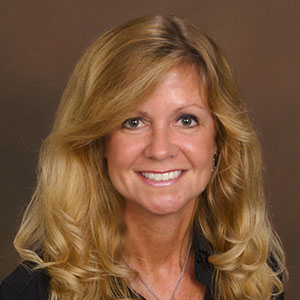
Kelly Ten Hagen is a senior investigator and chief of the Developmental Glycobiology Section at the National Institute of Dental and Craniofacial Research, which is part of the National Institutes of Health.
Her lab studies the enzyme family and factors that regulate protein O-glycosylation and how this conserved protein modification influences organ development and function. Her lab provided the first demonstration that this modification is essential for viability and has examined the specific roles of O-glycosylation in mucous barrier formation, kidney function and protein secretion.
Ten Hagen has been a member of the ASBMB since 2006. She has served on the editorial board of the Journal of Biological Chemistry, has been a member of the Meetings Committee, has organized and spoken at various ASBMB events, was a founding member of the Women in Biochemistry and Molecular Biology Committee, and was elected to the Council in 2018. She is an elected fellow of the American Association for the Advancement of Science.
Ten Hagen serves as the associate scientific director for diversity, equity, inclusion and accessibility at NIDCR. She received NIH Director’s Awards and the 2019 NIH Equity, Diversity and Inclusion Award for her work supporting and promoting women in science.
She was nominated by Lawrence A. Tabak, acting director of the NIH. He wrote: “She was instrumental in advocating for changes in the reporting, investigation and adjudication of harassment within the intramural program of the NIH. Her efforts led to the formation of the NIH Anti-Harassment Steering Committee (on which she serves), which subsequently led to new policies and procedures for reporting and addressing harassment in the workplace.”
Enjoy reading ASBMB Today?
Become a member to receive the print edition four times a year and the digital edition monthly.
Learn moreGet the latest from ASBMB Today
Enter your email address, and we’ll send you a weekly email with recent articles, interviews and more.
Latest in People
People highlights or most popular articles

Kiessling wins glycobiology award
She was honored by the Society for Glycobiology for her work on protein–glycan interactions.

2026 ASBMB election results
Meet the new Council members and Nominating Committee member.

Simcox wins SACNAS mentorship award
She was recognized for her sustained excellence in mentorship and was honored at SACNAS’ 2025 National Conference.

From humble beginnings to unlocking lysosomal secrets
Monther Abu–Remaileh will receive the ASBMB’s 2026 Walter A. Shaw Young Investigator Award in Lipid Research at the ASBMB Annual Meeting, March 7-10 in Washington, D.C.

Chemistry meets biology to thwart parasites
Margaret Phillips will receive the Alice and C. C. Wang Award in Molecular Parasitology at the ASBMB Annual Meeting, March 7-10 in Washington, D.C.

ASBMB announces 2026 JBC/Tabor awardees
The seven awardees are first authors of outstanding papers published in 2025 in the Journal of Biological Chemistry.
